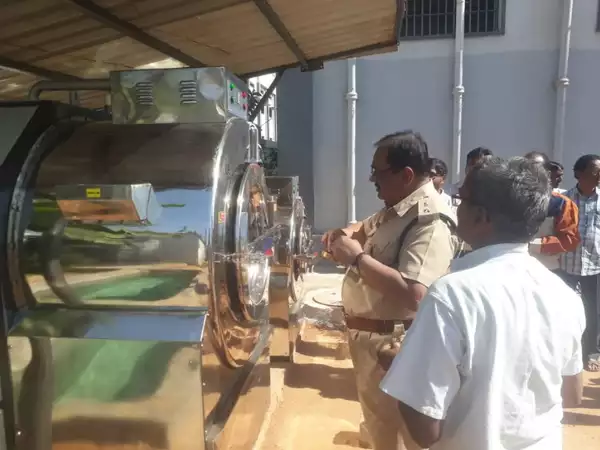
File Pic: Prisoners in Telangana get freedom from washing own cloth
Nagpur: In a bid to curb rising skin diseases, the Maharashtra State Prison Department, for the first time, introduced washing machines in jails. The pilot project in this regard has been initiated at Yerwada Central Prison in Pune. Subsequently, other prisons, including Nagpur Central Jail, will use washing machines to help inmates battle skin-related diseases.
According to senior jail sources, so far, all jails have placed an order for 193 washing machines. Sources further added that the result of the use of washing machines would be studied, and based on it, considering the requirement, as many as 325 washing machines will be installed in all jails in the near future. It is pertinent to mention that extreme overcrowding in state prisons has led to a rise in skin diseases among inmates.
Yerwada Central Prison has become the first jail in Maharashtra to have washing machines for inmates. Prison authorities said all jails in the state are similarly overcrowded with inmates. While this is among the factors that have caused a rise in skin diseases, as a prevention, it is essential to disinfect their clothes and bedding by washing them properly. To curb this problem, Tihar Jail in New Delhi had started using washing machines for inmates, and Maharashtra’s prison department is doing so on similar lines.
The overcrowding issue at Central Jail seems to have no end, with a whopping 1,027 excess inmates currently lodged in Nagpur Central Jail alone! Although the jail has a capacity of 1,940 inmates, it is currently accommodating 2,967 individuals serving sentences. The jail is designed to house 1,798 males and 142 females; however, there are currently 2,870 males and 97 females incarcerated in Nagpur Central Jail.
Presently, Maharashtra operates 60 jails with a combined capacity of approximately 25,000 prisoners. However, the actual number of inmates currently stands at 42,000, significantly surpassing the sanctioned capacity.
– Shubham Nagdeve














